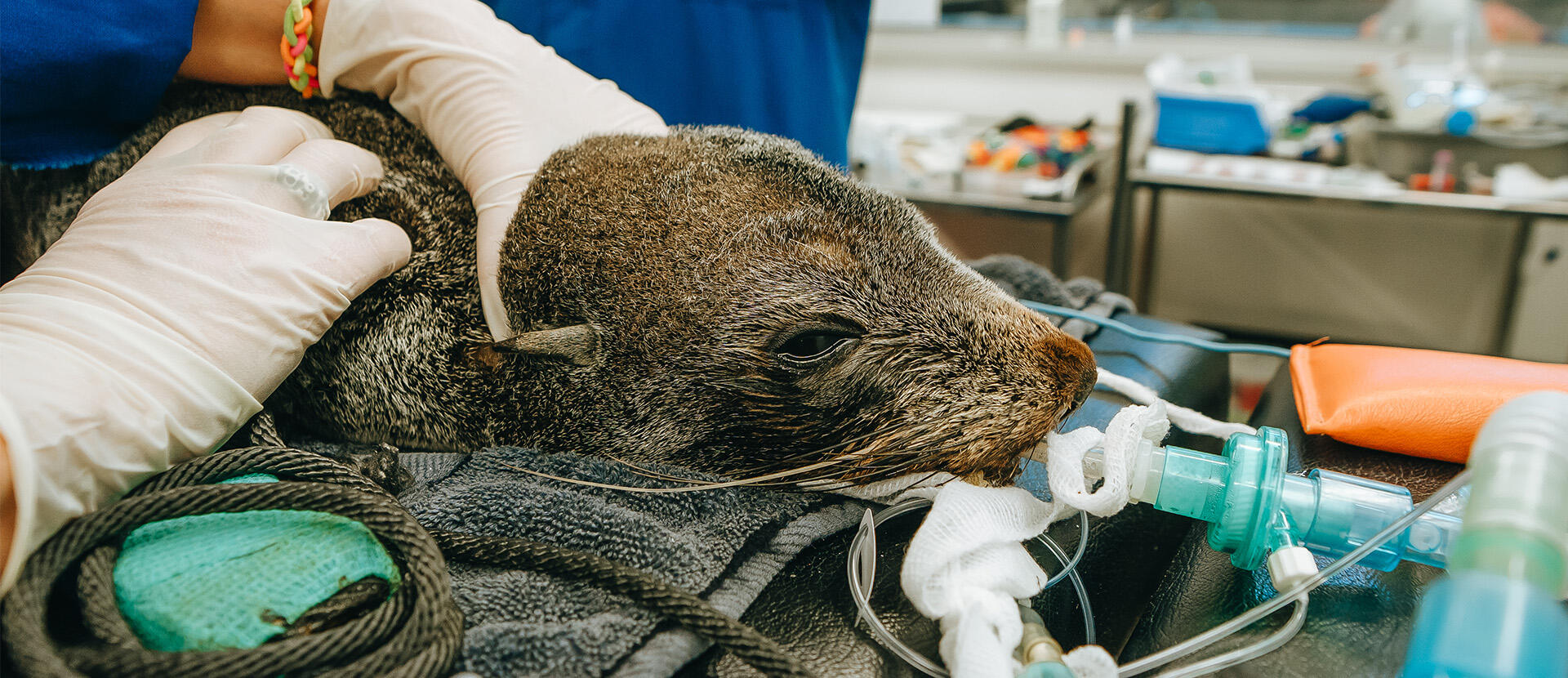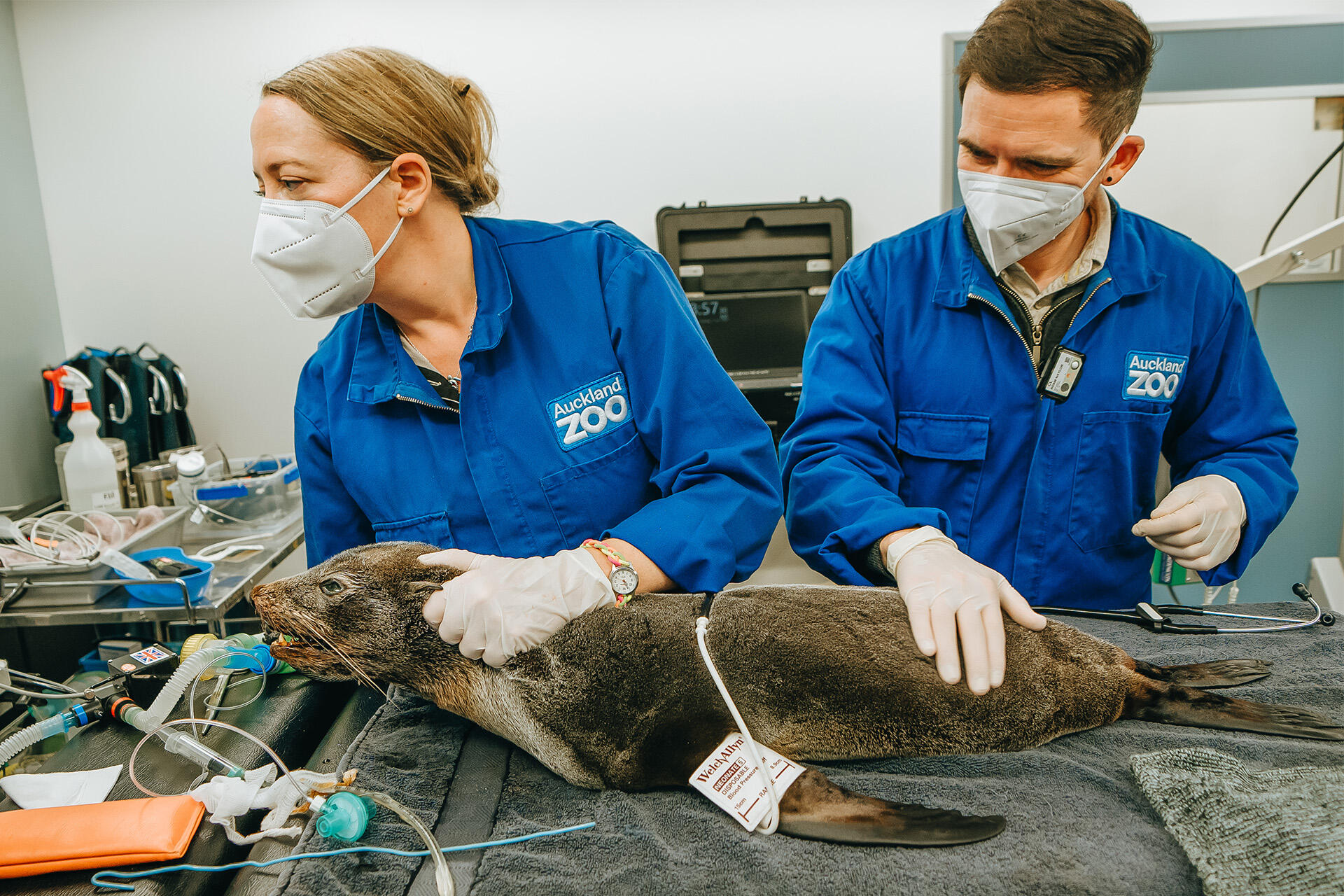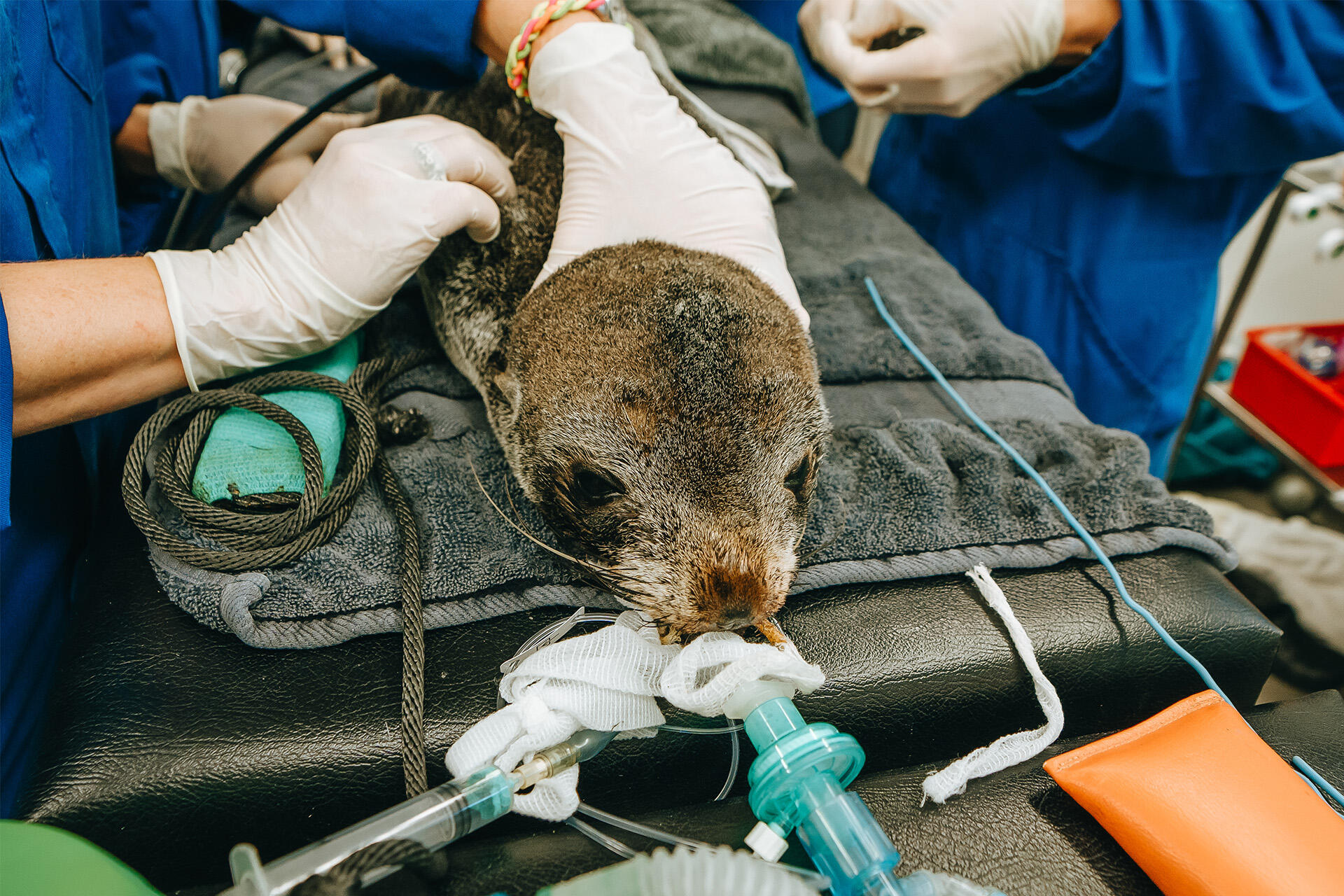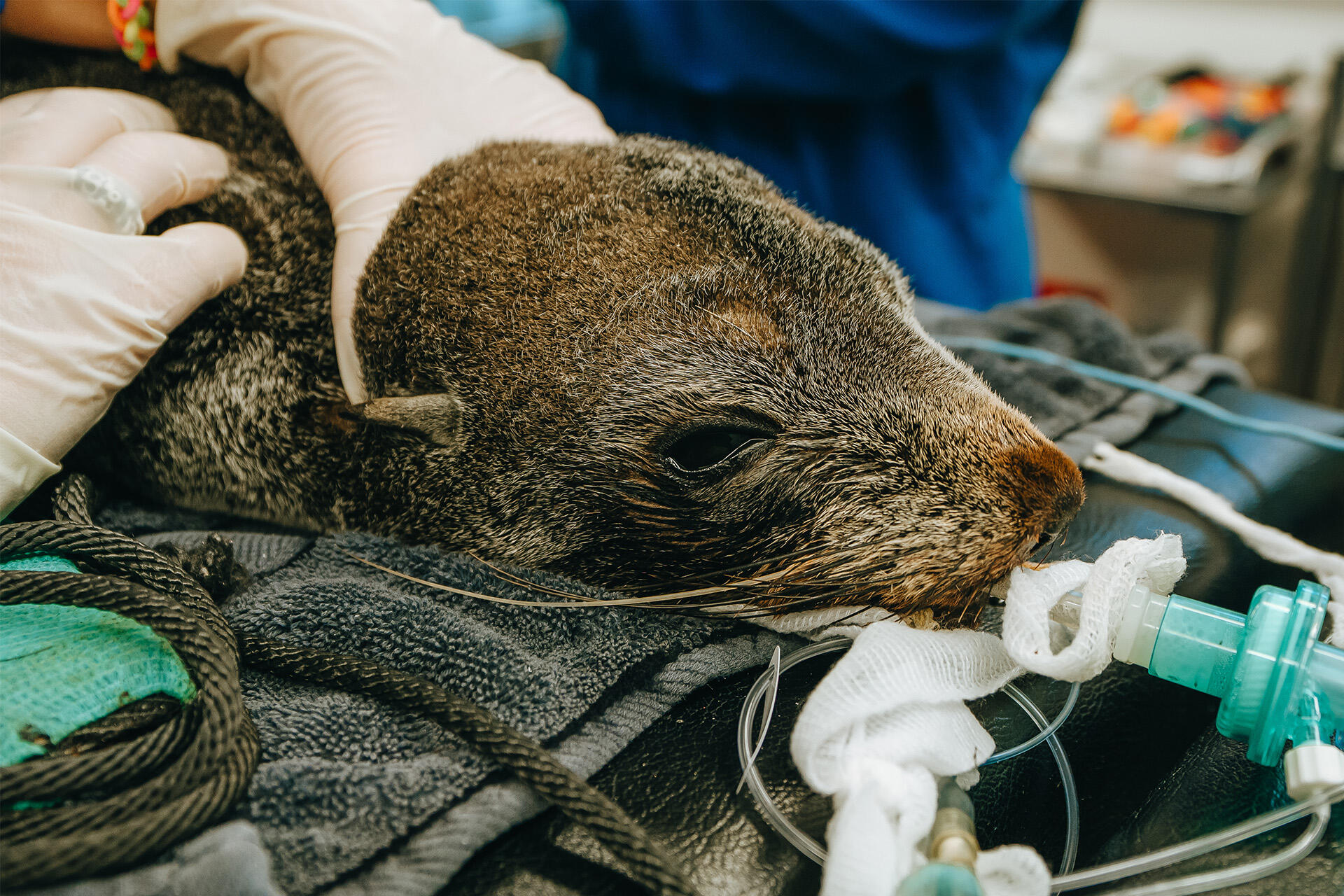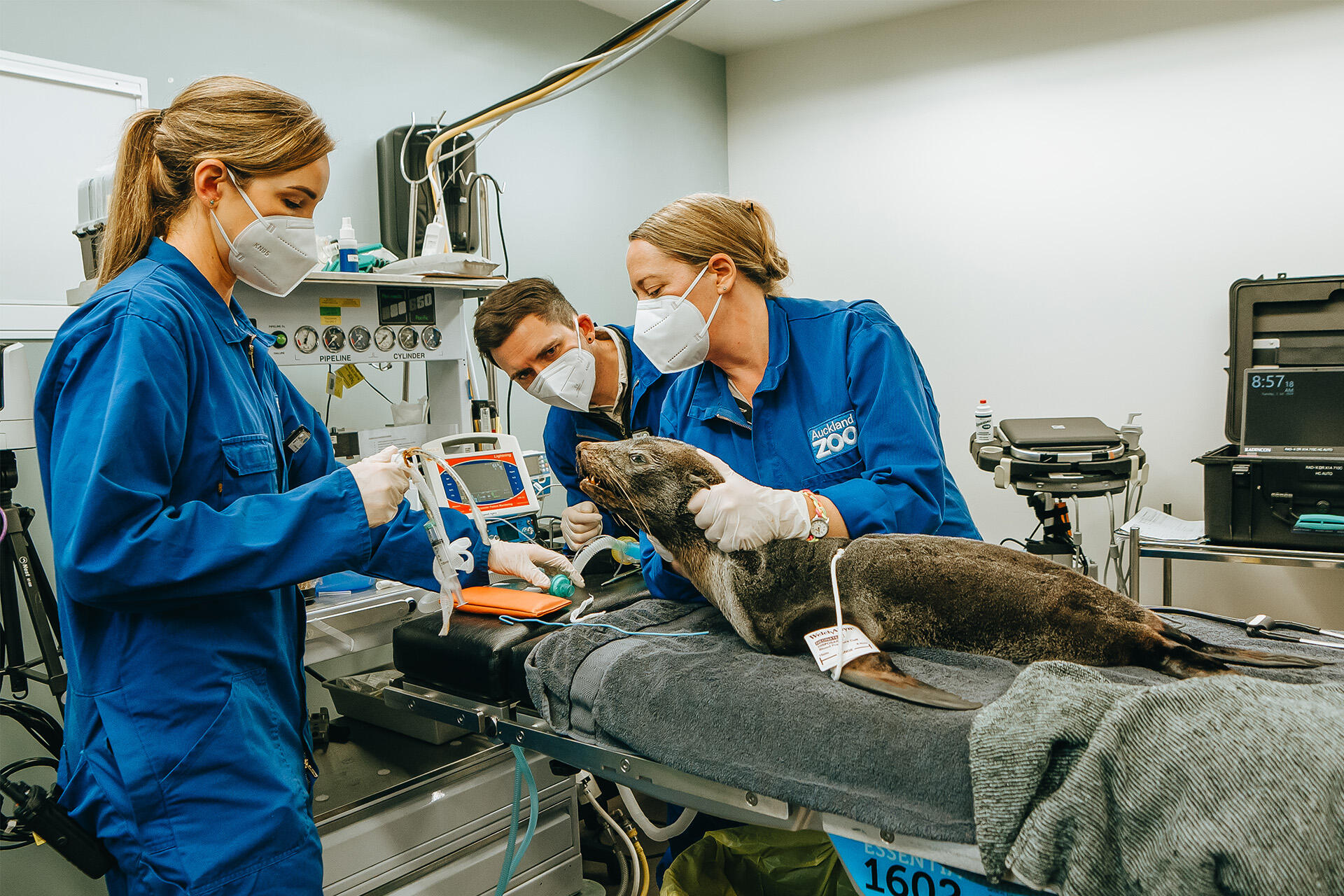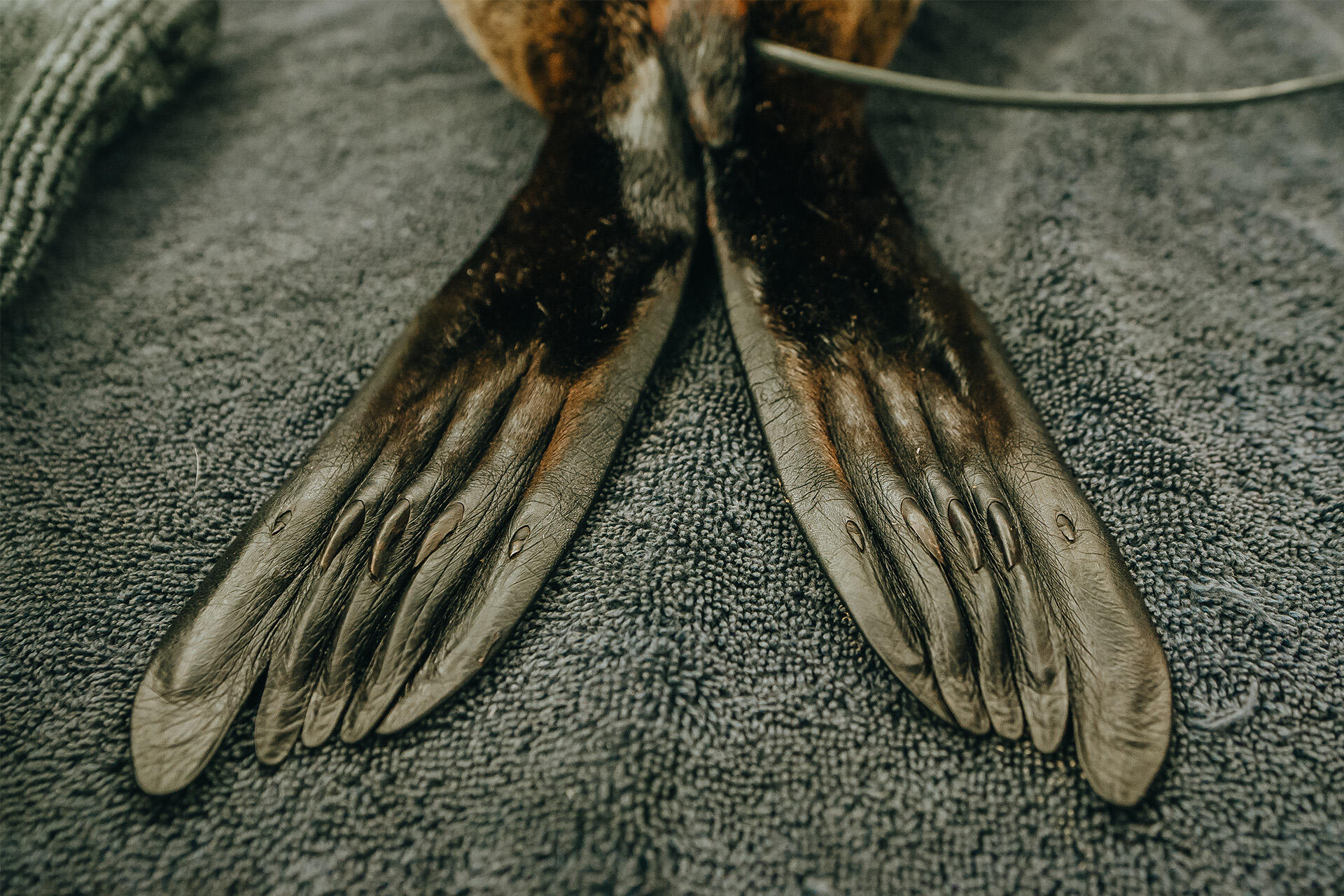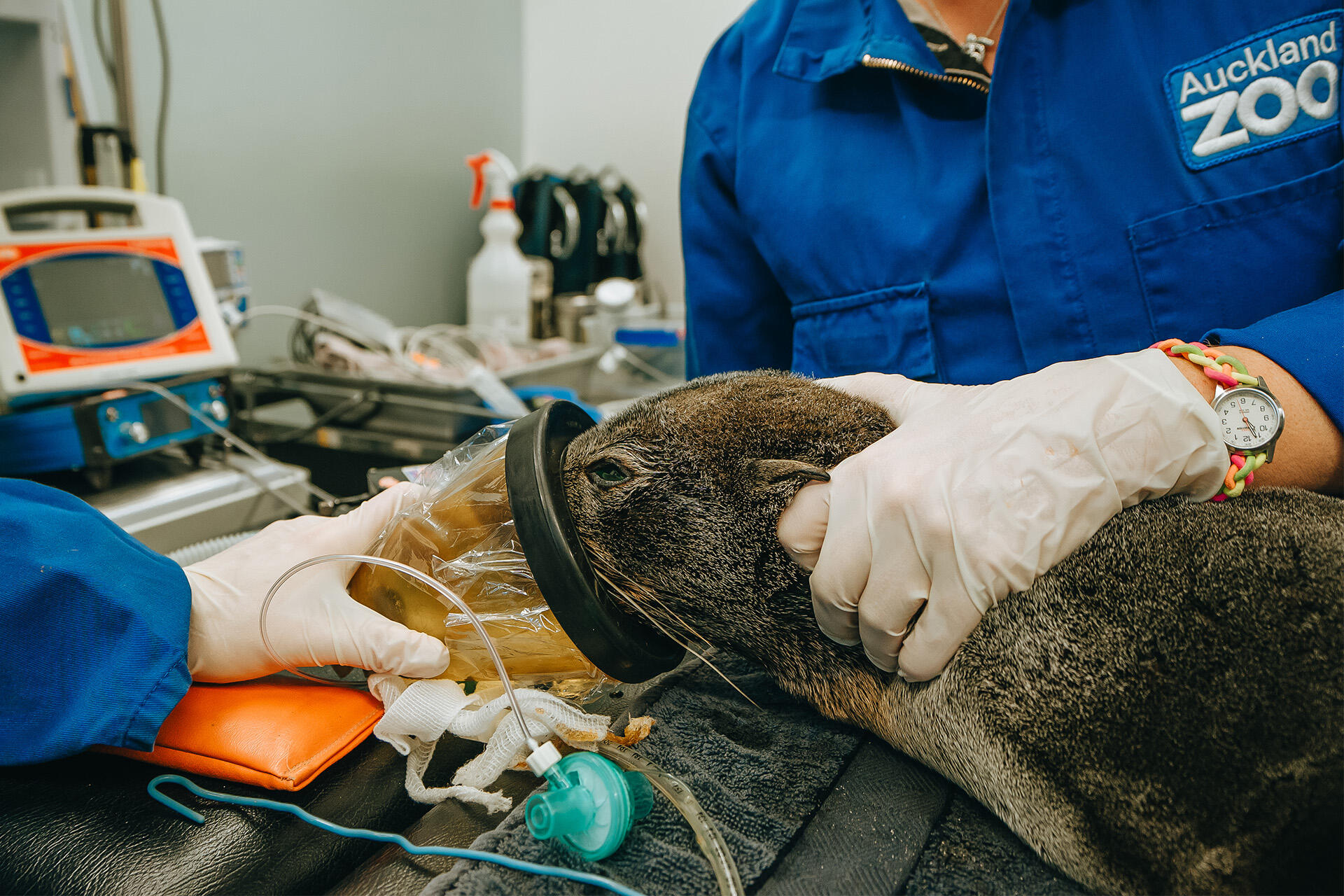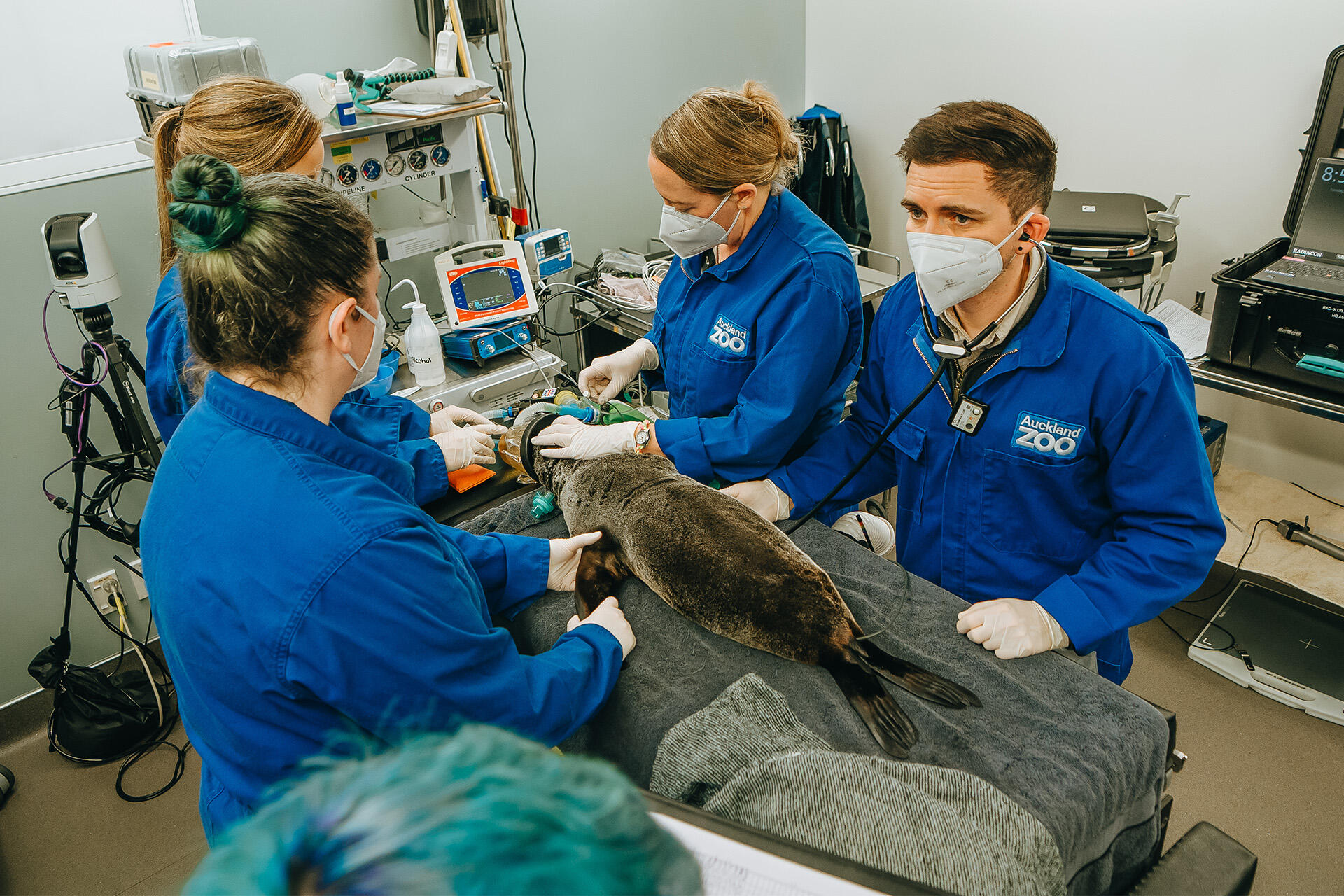Once weaned from their mothers, having to make their own way in the world and find enough food can be pretty tough for young kekeno/fur seal pups.
Recently Auckland Zoo’s highly skilled and dedicated veterinary team treated and cared for a severely emaciated young kekeno found on Karioitahi Beach (near Waiuku, southwest Auckland).
The female pup (9 -12 months old) arrived at our vet hospital on 1 July with a decomposed bird dangling from its mouth - an indication of its desperation to find food. Following an emergency examination and administering of pain relief and intravenous fluids to hydrate her, she was treated with antibiotics, and anti-inflammatory and other supportive medications, and fed a highly nutritious fish slurry several times each day.
“While this pup remained feisty - a great sign - and was clinically showing some positive improvements by mid-July (weight gain, stabilised blood glucose levels), more blood test results on 19 July revealed escalating rather than decreasing white blood cell counts,” says our veterinary services manager, James.
“As we see often here at the Zoo and in the wild, animals are exceptionally good at masking illness. Unfortunately, despite all our best efforts, including treatment with two different types of antibiotics, her bloods showed she still had anaemia and significantly worsening infection and inflammation, indicating underlying disease. In assessing her welfare, we couldn’t see a likely outcome where she could be released back to the wild, making euthanasia the kindest and only right option.”


